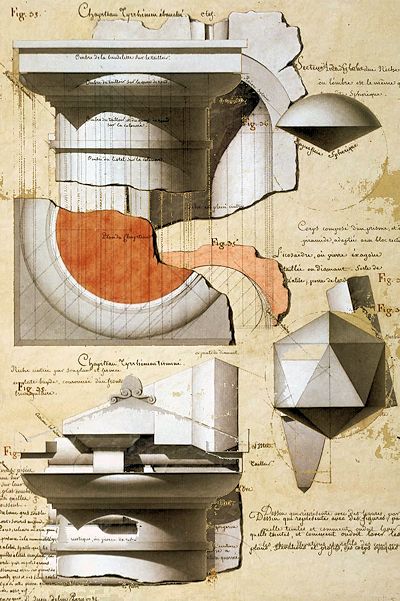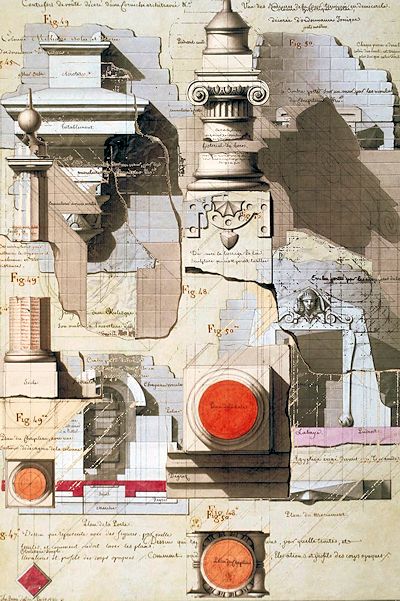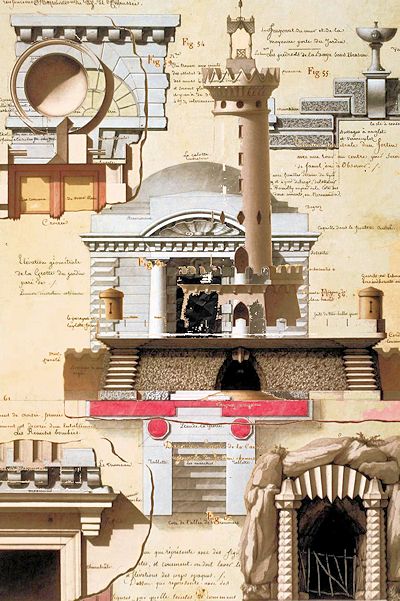2016.07.19
The kind of laughter provoked by... borrowing from Philippe Duboy
The kind of laughter provoked by Lequeu's encyclopaedic work makes us classify it with that 'certain Chinese encyclopaedia' mentioned by Michel Foucault:
It left a suspicion that there is no worse disorder than the incongruous and the linking of things that do not belong together ... this would be a disorder which sets aglitter the facets of many possible orders of things in the no-man's-land of the 'heteroclite' which has neither laws nor geometry; and we must take this term in its etymological sense as meaning things that are so placed, 'laid down' or disposed that they have no slot or pattern into which they naturally fit, and no common place or ground underlying them. Utopias are reassuring, because although they have no place in reality they open up cities with vast avenues, admirably designed parks, landscapes of milk and honey, even though our access to them is chimerical. But heterotopias are disturbing, no doubt because they furtively undermine language, because they prevent us from naming this or that; because they destroy or confuse names; because they set out to corrupt or demolish 'syntax'--not only that syntax which structures phrases, but that less obvious one which binds words and things together, side by side and face to face. That is why utopias allow the creation of fables and discourses, confabulations which are the direct outcome of the spoken language itself in its natural dimension of the fabula; whereas heterotopias inhibit expression, halt words in their tracks, threaten the very existence of a unifying grammar: they dismember our myths and strike barren the lyricism of fine words.
| |

| |

| |

|